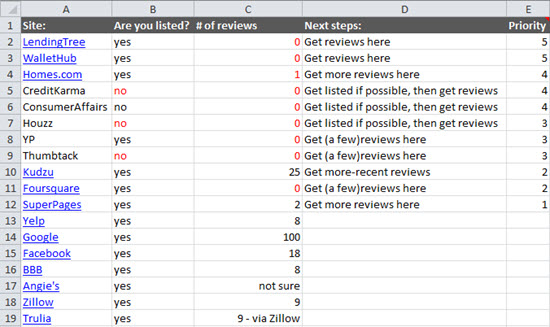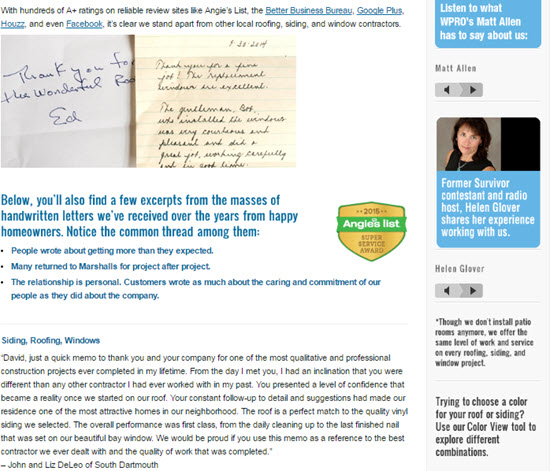Most local SEOs don’t help clients on reviews, much or at all. They can’t outsource it, it doesn’t look like a lot of billable hours on paper, it takes tough love, and they’re not even sure what they’re supposed to do.
That’s a shame. Few things can prove your worth as much as helping clients get dialed-in on reviews. Having good rankings without good reviews is good only for one’s competitors.
Besides setting up the review tool du jour (usually a waste of time) and maybe creating some printouts (usually a good move), what can local SEOs do for clients on reviews?
Plenty.
1. Help troubleshoot their current review strategy. You will find problems – and ways to improve.
2. Do a “review audit.” I like to do a quick “just the facts, ma’am” -type audit, with an emphasis on niche review sites.

But if you’ve got your client’s ear for broader business advice, you might also do this very different type of review audit, which Miriam Ellis suggests.
3. Do a bulk “Find Friends” lookup on Yelp – as a way of identifying which customers are active on Yelp and there most likely to write a review there. Also, explain to your clients that they can easily look up new customers / clients / patients one at a time, as they come in, if that’s easier.
4. Find the waste. Does your client have 200 DemandForce “reviews” but none on Google? Does your client ask everyone for a Facebook “like,” but not even a Facebook review? Has your client sent 50 people into Yelp’s meat grinder, only to have their words and goodwill extruded out as 50 filtered reviews?
5. Critique and improve your client’s outreach emails. There should be two requests: one in-person, and a friendly email follow-up a few days later. A personalized, friendly, brief, not-pushy email that offers customers a couple choices of review sites is an easy way to pick up stragglers who otherwise would’ve forgotten to put in a good word online. Write a version that you think will do better than what your client currently sends, and test it out.
6. Mine the reviews.
7. Showcase your client’s reviews on the site. That’s not a problem with Yelp or with Google; they won’t get filtered. But you still want them on the site, because [BLEEP] happens, and because you can’t assume that would-be customers saw all the good reviews in the search results before visiting the site. Also, it’s relevant on-page content that you don’t have to write.
8. Build a “Reviews” page.
This is one place to do #7, although you can and perhaps should show off your reviews elsewhere on the site, too. By the way, the page doesn’t have to come across as “having your mom as a reference on your resume.”
9. ALSO build a separate “Review Us” page. That’s different from the “Reviews” page, which you’d build mainly to impress would-be customers (and maybe even to rank for some “reviews” local search terms). Only current and past customers see the “Review Us” page. You’re no longer trying to impress them; now you’re encouraging them to write the kind of review that probably was why they chose your client in the first place.
10. Discuss review strategy – continually. You won’t get dialed-in after one phone call, or even after a couple of months. You need to help your clients diversify. You need to keep them from bribing customers or making it too easy, so that the reviews your clients get are impressive and not bare-minimum or fishy. You may need to replicate your success in other locations of your client’s business. If you just don’t forget about all the ways you can help, you’ll become indispensable.
—
How do you help clients earn more and better reviews?
Any suggestions I’m missing?
Leave a comment!

